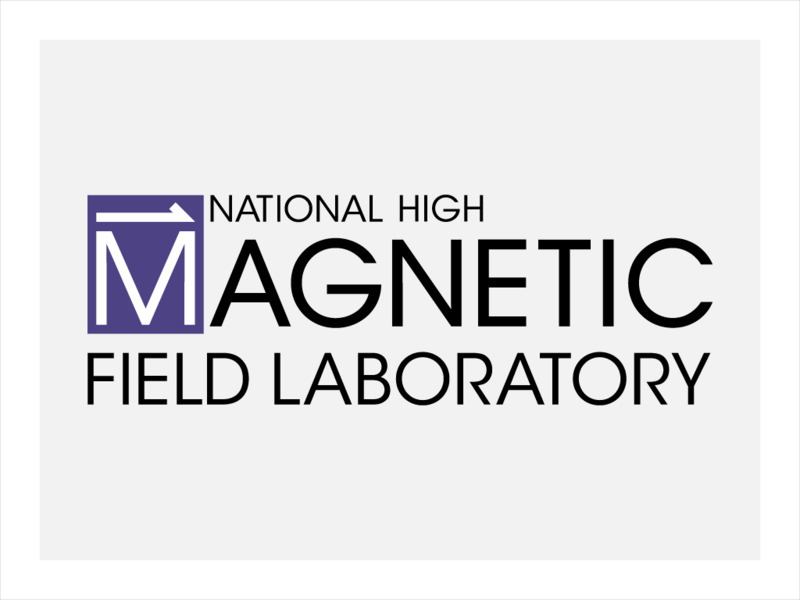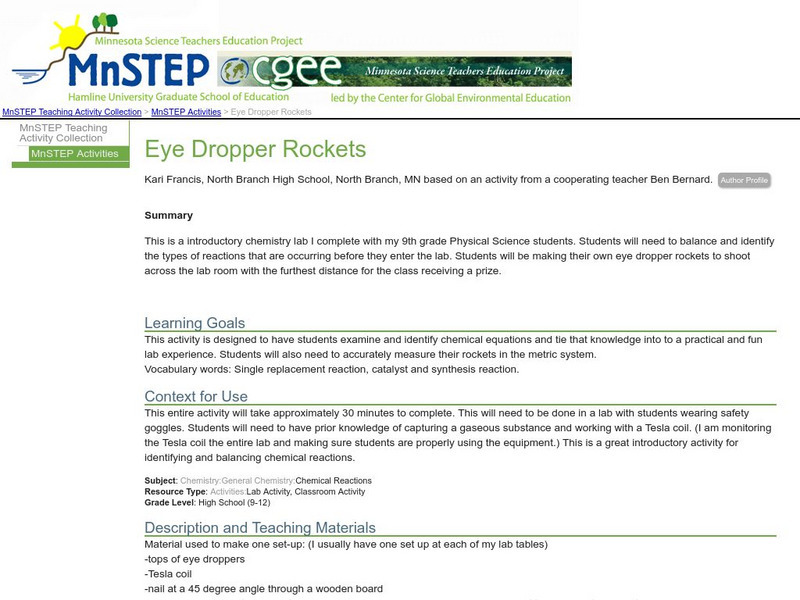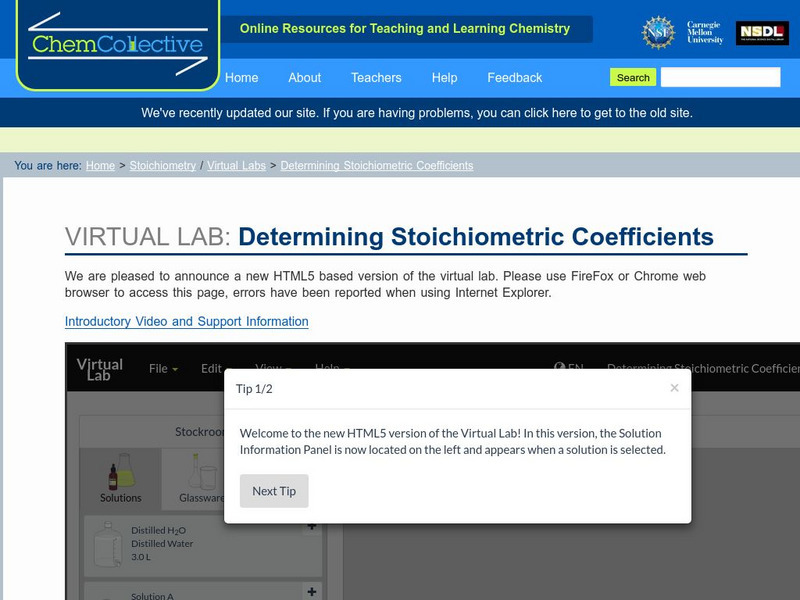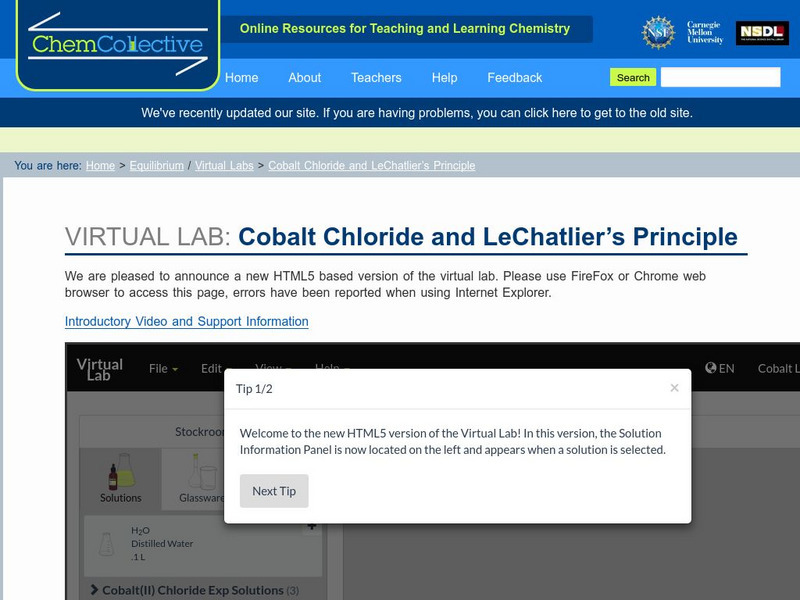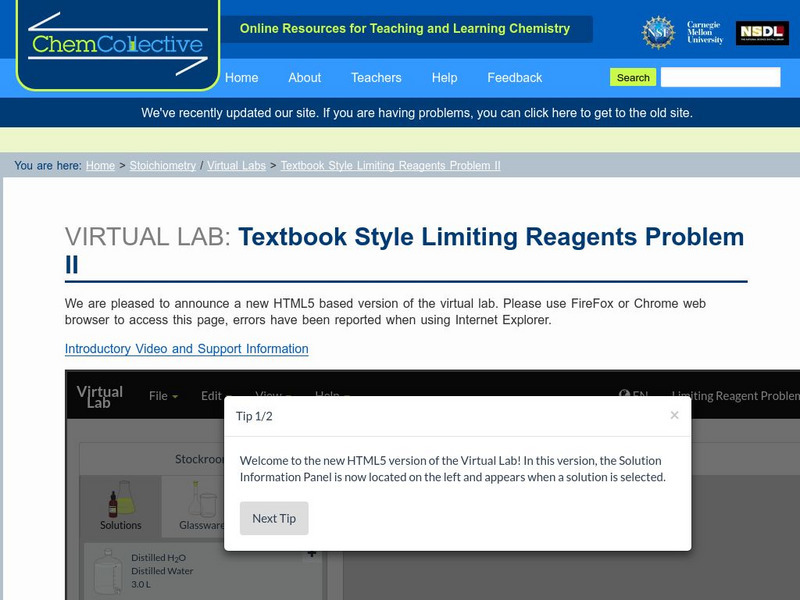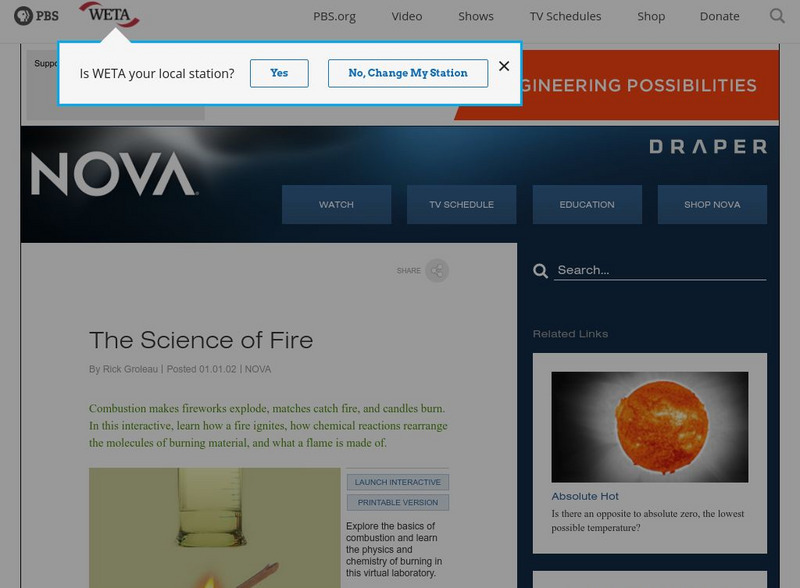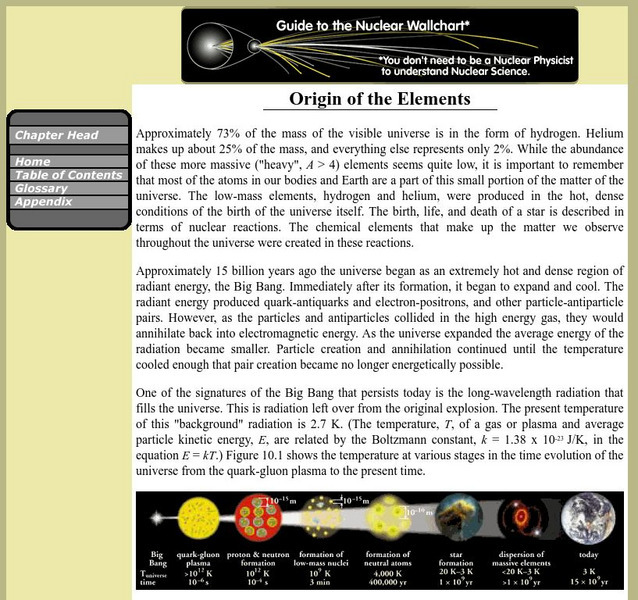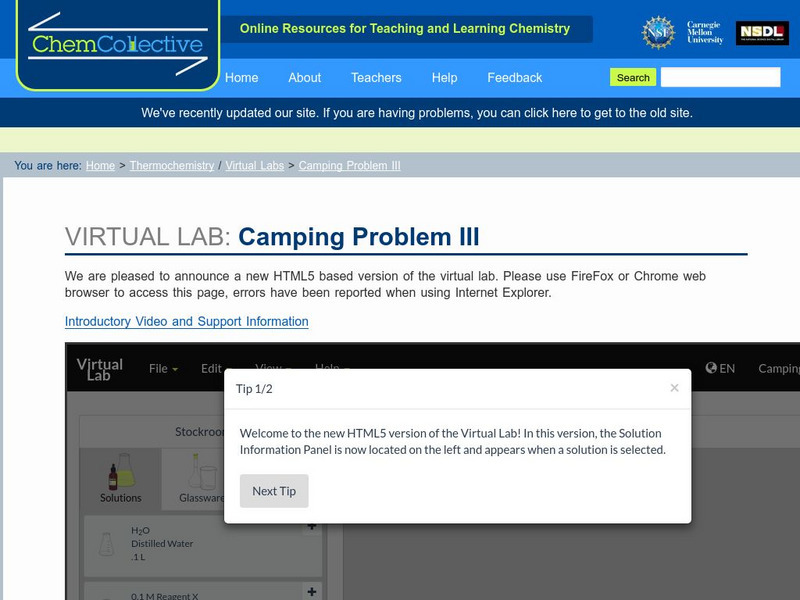Dartmouth College
Dartmouth College: Chem Lab: Coordination Chemistry 3.1: Acid/base Analysis
In this experiment, you will examine the acidity of your coordination complex's water ligand. You will determine the acid dissociation constant of the complex by titrating it with a base. There are eight weeks of experiments in this series.
American Chemical Society
Inquiry in Action: Formation of a Precipitate
A lab activity where students observe a chemical reaction by creating a precipitate. In this lab, students will create soap scum by combining hard water with soap. Lab activity includes both student and teacher information sheets.
National High Magnetic Field Laboratory
Magnet Academy: Svante Arrhenius
Svante Arrhenius was born in Vik, Sweden, and became the first native of that country to win the Nobel Prize. The award for chemistry was bestowed to him in honor of his theory of electrolytic dissociation. Arrhenius also developed the...
Concord Consortium
Concord Consortium: Stem Resources: Baggie Chemistry
Observe chemical and physical changes with this lab using everyday household items. Lab includes procedure and online data collection tool where answers can be saved and graded by teacher.
Science Education Resource Center at Carleton College
Serc: Eye Dropper Rockets
Learners balance and identify the types of chemical reactions, and then using the reaction knowledge, they make eye dropper rockets to shoot across the lab room with the ultimate goal of making it go the farthest.
Other
Chem 122 Lab: The Titration of Acetic Acid in Vinegar [Pdf]
An experiment from a New Mexico Tech chemistry lab course through which students learn about titration, acetic acid, and weak acids. Contains pre-lab material, diagrams, chemical reactions, procedure, and post-lab questions.
Concord Consortium
Concord Consortium: Stem Resources: Making Heat
In this activity, students perform a reaction with different concentrations of reactants and monitor the temperature of the reaction. Activity contains procedure, analysis questions, and graph template. Students can save their answers...
Chemistry Collective
Chem Collective: Determining Stoichiometric Coefficients
In this activity, students use the virtual lab to determine how four unknown substances react with each other including their stoichiometric coefficients.
Georgia Department of Education
Ga Virtual Learning: Chemistry: Thermochemistry
Through informational text, interactive practice problems, online labs, and virtual simulations, students are introduced to the concepts of thermochemistry.
Dartmouth College
Dartmouth College: Qualitative Analysis of Anions
"In this experiment, you will observe the reactions of some simple salts, analyze common household chemicals, and identify an unknown sample by testing its reactivity."
Chemistry Collective
Chem Collective: Cobalt Chloride and Le Chatlier's Principle
In this activity, students safely explore the equilibrium reaction of the cobalt chloride reaction.
Chemistry Collective
Chem Collective: Textbook Style Limiting Reagents Problem Ii
In this activity, students practice with experiments involving limiting reagents and the test their knowledge to determine the concentration of an unknown solution.
PBS
Pbs: The Science of Fire
A virtual experiment bringing you to the center of combustion! Understand how fire ignites, what makes a flame, and how molecules rearrange themselves in chemical reactions. This interactive activity gives students four different...
Scholastic
Scholastic: Dirtmeister's Science Lab: Egg Citing Science: Acids and Bases
An simple experiment that will allow students to observe the effects of acids and bases on an egg and to then discuss what these observations tells us about larger issues, like acid rain.
Science is Fun
Science Is Fun: Put a Shine on It
An experiment investigating how to remove the tarnish from silver. Includes an explanation of how the silver becomes tarnished, and the chemical reaction taking place when the shine is restored.
Science Education Resource Center at Carleton College
Serc: Hydrogen and Oxygen Gas: An Explosive Interaction
This lab provides the opportunity for students to generate, collect, and test two very common gases, hydrogen and oxygen. They will test the combustion reaction of different proportions of the gases based on the most reactive explosion.
Other
The Science House: Dancing Spaghetti
The chemical change of matter is illustrated in this lab experiment when spaghetti is placed in a solution of baking soda and vinegar. Watch the spaghetti rise to the surface and sink again once the gas is released.
Lawrence Berkeley National Laboratory
Berkeley Lab: Origin of the Elements
Discussion of the creation of the chemical elements that make up the matter we observe throughout the universe.
Other
Science Alive: Changing the Starch in "Yams" to Sugar
This lab activity provides students with the experience of using their own enzymes to convert starch to sugar (a disaccharide called maltose), then testing to see if the conversion has taken place.
Utah STEM Foundation
Utah Stem Action Center: Marie Curie and Chemistry
Lesson teaches about Marie Curie and Chemistry. Lab activities include making slime, elephant toothpaste, and snow, and also a balloon rise.
TeachEngineering
Teach Engineering: Wizardry and Chemistry
Students learn how common pop culture references (Harry Potter books) can relate to chemistry. While making and demonstrating their own low-intensity sparklers (muggle-versions of magic wands), students learn and come to appreciate the...
Chemistry Collective
Chem Collective: Camping Problem Iii
In this part of the MRE scenario, students create solutions that when mixed, increase to a certain temperature.
Science Education Resource Center at Carleton College
Serc: Visualizing Molecules in Motion
In this lab, students will explore the motion of molecules, the forces involved in making them move and predict the level of interaction that molecules can have in order to better understand chemical reactions.
Alabama Learning Exchange
Alex: The Evidence of Chemistry
The students will learn to identify evidence that a chemical reaction has taken place. They will use the Internet to research evidence and find examples. They will look around their school and neighborhood for examples. They will perform...




